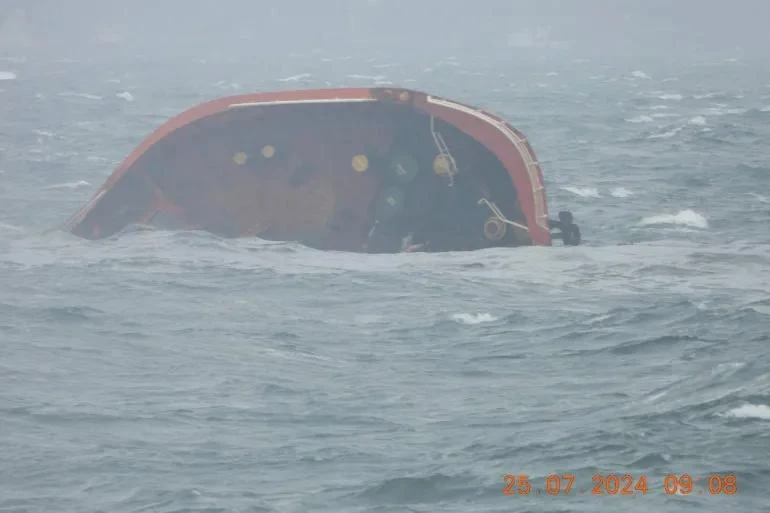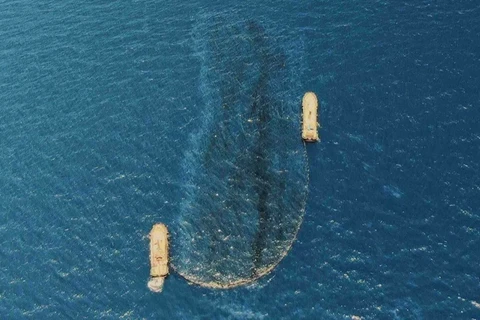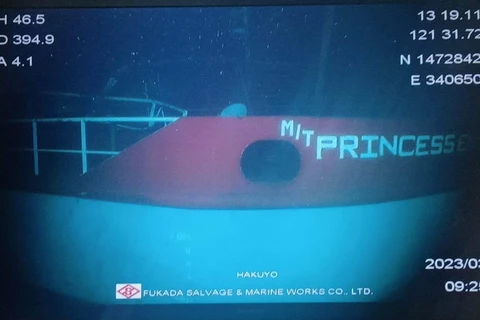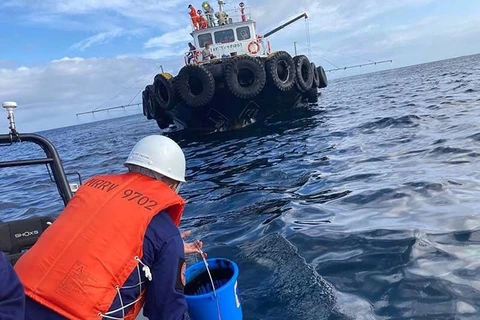
Hanoi (VNA) – Philippine authorities are racing against time to contain an oil spill following the capsizing of a tanker carrying 1.4 million litres of industrial fuel oil off the coast of Manila Bay on the morning of July 25.
The Philippine-flagged MT Terra Nova overturned and sank in Manila Bay, approximately 7 kilometers off the Limay municipality in Bataan province, near the capital Manila, while en route to the central city of Iloilo.
The incident has resulted in an oil slick stretching about 3.7 kilometres in the busy waterway. Marine environmental protection personnel have been deployed to help contain the spill.
Philippine Coast Guard spokesperson Rear Admiral Armando Balilo said that authorities are doing their utmost to prevent further oil spillage. Balilo warned that if the entire cargo leaks, this can become the largest oil spill in the Philippine history. He also noted that the incident could affect the coastal areas of Manila.
Earlier, Transportation Secretary Jaime Bautista reported that 16 out of the 17 crew members had been rescued, with four receiving medical treatment. Search efforts are ongoing for one missing crew member. Response operations are being hampered by strong winds and high waves.
The MT Terra Nova was overwhelmed by large waves as Manila and surrounding areas experienced heavy rains and strong winds from Typhoon Gaemi in recent days.
One of the most severe oil spills in the Philippines occurred in February 2023, when a tanker carrying 800,000 liters of industrial fuel oil sank off the coast of the central island of Mindoro. This incident polluted waters along the coastal areas of Oriental Mindoro province, devastating the fishing and tourism industries. The oil spread hundreds of kilometres in waters known for their rich marine biodiversity. Authorities were forced to impose a temporary fishing ban, impacting thousands of fishermen’s livelihoods, as well as a ban on swimming.
In 2006, another oil tanker sank off the coast of Guimaras Island, spilling tens of thousands of litres of oil, destroying marine reserves, damaging local fisheries, and covering beaches with layers of black sludge./.






















